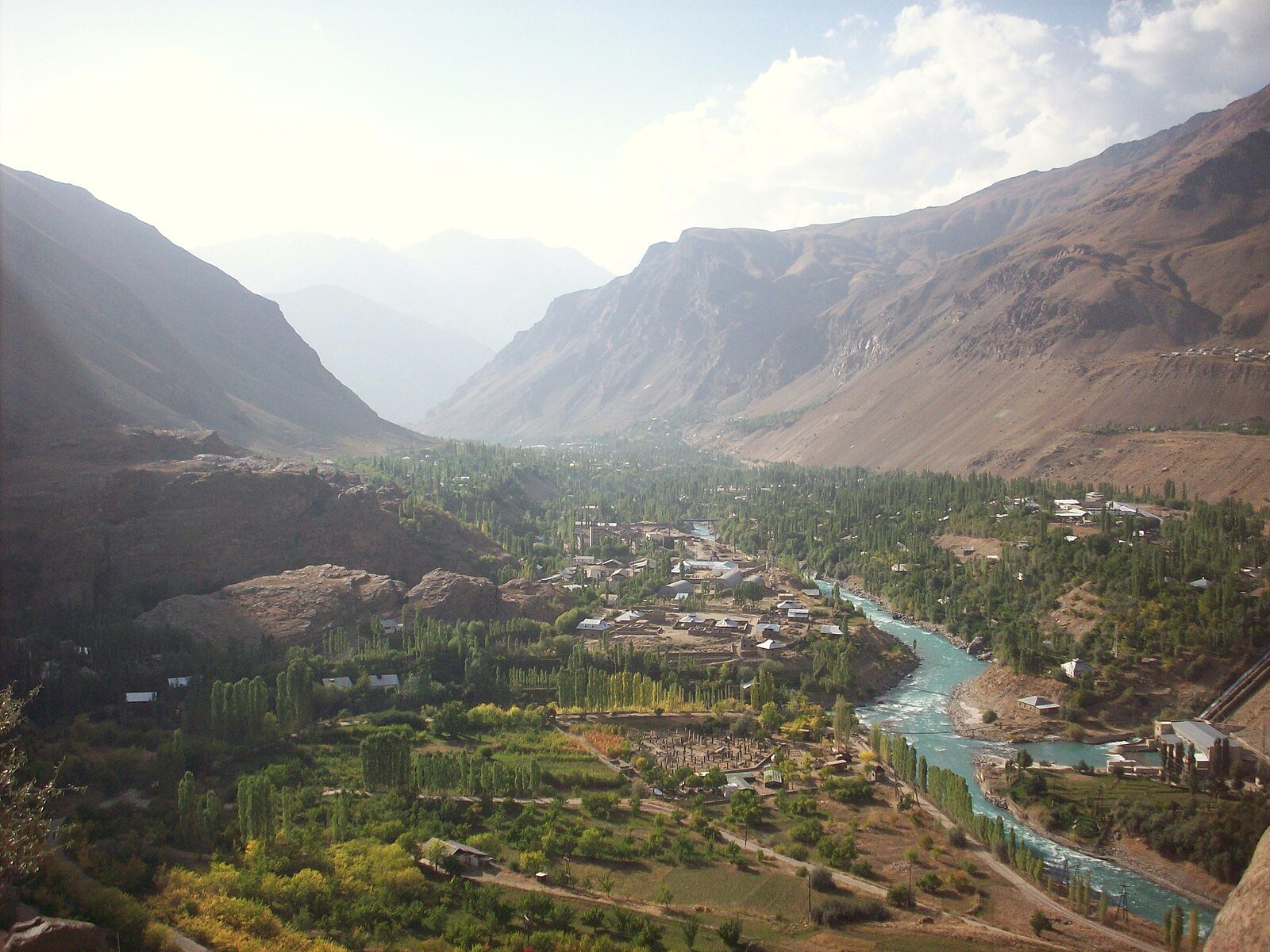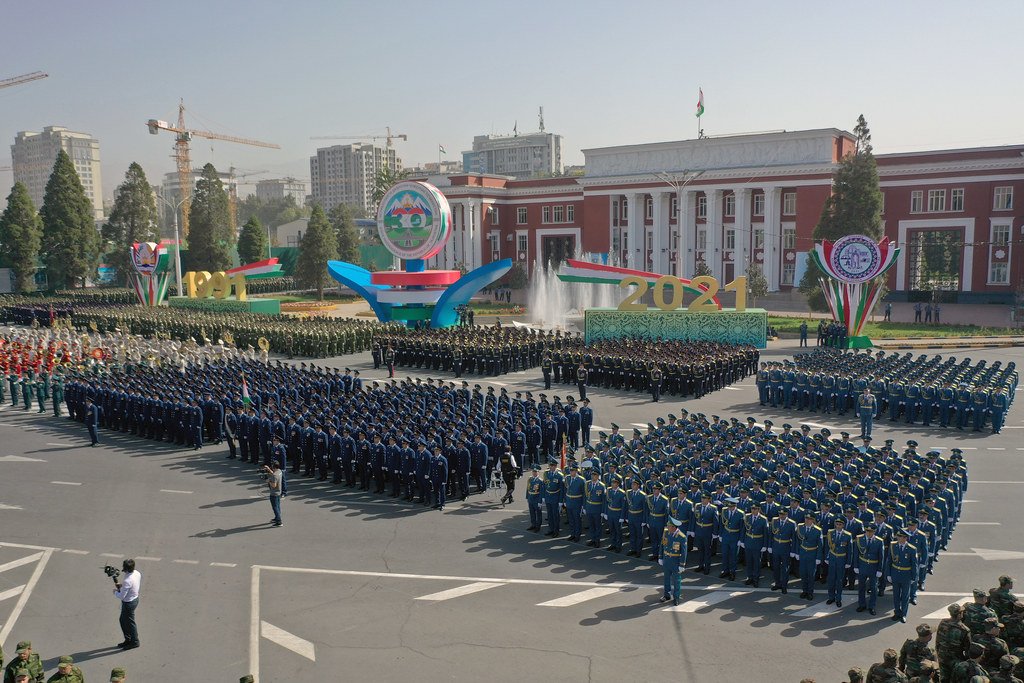Week In Review: Afghanistan and Tajikistan in Focus
 Photo: Orda Collage
Photo: Orda Collage
Orda.kz has put together a brief synopsis of last week's news. This edition focuses on reports concerning a Tajik delegation arriving in Afghanistan and related developments.
A Quiet Delegation
Afghan media reported that a “high-level Tajik delegation” arrived in Kabul on November 15.
The group reportedly included 14 officials from Tajikistan’s security, intelligence, diplomatic, and other government agencies.
According to Afghan outlets, the Tajik delegation’s visit was focused on security cooperation, including border issues, prisoner exchanges, and counterterrorism.
Afghan outlets claimed that the delegation was expected to meet senior Taliban officials, including:
- Taliban Prime Minister Mohammad Hassan Akhund
- Acting Foreign Minister Amir Khan Muttaqi
- Defense Minister Mullah Yaqoob
- Army Chief of Staff Qari Fasihuddin
- Minister for Border Affairs
- Intelligence chief Abdulhaq Wasiq
Amu TV reported that during the meetings, the Taliban requested that Tajikistan officially recognize the Taliban government and transfer Afghanistan’s embassy in Dushanbe to a Taliban-appointed representative.
Tajikistan’s government has not commented publicly on the requests.
Embassy Issue and Focus of Talks
Tajikistan remains the only neighbor of Afghanistan that has not transferred its Afghan embassy to Taliban representatives. The Taliban claim, however, that Afghanistan’s consulate in Khorog is already operating under their appointed representative.

Reporting from Amu TV and TOLOnews suggests the discussions centered on:
- Political relations
- Trade and cross-border commerce
- Border security
- Prisoner exchanges
- Counterterrorism
- Economic cooperation
Regional Interactions Increasing?
Tajikistan stands apart in the region. Most regional neighbors have accepted Taliban-appointed representatives and expanded official engagement, with economic activity visibly increasing.
On November 17, Uzbekistan signed an agreement to continue exporting electricity to Afghanistan in 2026. Afghanistan imports around 800 MW of electricity from Turkmenistan, Iran, and, ironically, Tajikistan.
Its domestic generation capacity is only ~250 MW, forcing Kabul to spend $250–280 million annually on imports.
In August, Afghanistan and Uzbekistan signed four agreements worth nearly $250 million to expand power transmission infrastructure. Tashkent has also expanded economic ties, namely in energy.
Turkmenistan, meanwhile, signed a $5 million agreement with Afghanistan to modernize infrastructure at the Torghundi Port, a key trade hub linking South and Central Asia in early August.
Tashkent and Ashgabat were among the first in the region to pursue such engagement after the Taliban’s 2021 return to power.
Regional cooperation also includes larger multilateral projects. CASA-1000 is designed to interconnect Kyrgyzstan, Tajikistan, Pakistan, and Afghanistan.
Whether Afghanistan will complete its section remains unclear despite Taliban officials’ claims that it could be finished within one to two years. If completed, it could enhance access to energy for people and businesses; if not, significant losses for those who have completed their sections.
So, Why The Hesitation?
Despite notably increasing economic interaction, Tajikistan has long dragged its feet. The unwillingness stems from decades-old distrust.
Additionally, as veteran journalist and regional expert Bruce Pannier explained to Orda.kz, the hesitation is personal and political for Rahmon, creating a credibility dilemma:
Among Afghanistan’s immediate neighbors, Rahmon is the only leader in power today who was also in power 30 years ago when the Taliban appeared in Afghanistan. He was vehemently against the Taliban then and has never changed his opinion of the group. If Rahmon were to signal the time has arrived to recognize the Taliban government, how does he explain this reversal to Tajikistan’s people who have listened to Rahmon’s repeated warnings about the Taliban for three decades?
Against that backdrop, concerns about militant threats also shape Tajikistan’s position.
Jamaat Ansarullah, a group of militants of Tajik origin and based in Afghanistan, at one time aligned with the Taliban before the group retook power in 2021. A rogue former Tajik opposition commander formed the group, banned in Tajikistan, with the ultimate goal of overthrowing the current Tajik government.
The group has openly threatened Dushanbe.
Following the events in 2021, Dushanbe had also mobilized 20,000 troops to reinforce its border with Afghanistan, underscoring said anxities:
In the first months after the Taliban reconquered Afghanistan and the Tajik government was warning about the danger and reinforcing troops along the Afghan frontier, Rahmon was invited to France and to EU headquarters in Brussels. Pannier points out.
At that time, reports surfaced that Tajikistan was helping the National Resistance Front (NRF).
The group largely consists of ethnic Tajiks and former government soldiers, still engaged in a guerrilla campaign against the Taliban. Ahmad Masoud, the son of the Afghan field commander and ethnic Tajik, Ahmad Shah Masoud, heads the group and has frequently visited Dushanbe since 2021.
Tajik president Rahmon Emomali posthumously awarded Ahmad's father and Burhanuddin Rabbani with a prestigious national award.
Such support has been a political instrument for Rahmon:
Rahmon is deeply unpopular in Tajikistan. His support for the Tajiks in Afghanistan has been one of the few issues that rallied Tajikistan’s people behind Rahmon. The Tajiks of Tajikistan seem to feel a closer kinship to the Tajiks in Afghanistan than the Uzbeks of Uzbekistan feel towards the Uzbeks in Afghanistan, or than the Turkmen in Turkmenistan feel toward the Turkmen in Afghanistan. Rahmon backed Ahmad Shah Masoud’s forces in the late 1990s and has, at least until very recently, supported the forces of his son Ahmad Masoud. Again, the majority of Tajikistan’s people seem to support this policy. The people of Tajikistan hear the stories of Taliban mistreatment of Tajiks in Afghanistan. Whether all these stories are true or not, this is what Tajiks in Tajikistan hear and believe. Bruce Pannier told Orda.kz.
However, it also creates another conundrum:
Allowing the Taliban to occupy the Afghan Embassy in Dushanbe, for example, would, for many of the Tajiks of Tajikistan, probably appear to be a betrayal of loyalty for Afghan Tajiks and another reason for Tajik citizens to dislike their president. Pannier continues.

A Shift In Dynamics?
Dushanbe has reportedly taken a step back from its earlier support for the NRF, as opposition forces in Afghanistan have yet to consolidate. This recalibration has also coincided with Russia — a close ally of Tajikistan — formally recognizing the Taliban.
In this context, the Tajik authorities' domestic silence on the meetings with Taliban authorities indeed stands out, though this behavior is not unique, given the above dilemmas. It may also signal to those it once supported that Dushanbe is simply accepting the new regional reality — but only to the limited extent other Central Asian states have.
At the same time, border tensions have periodically flared between the two sides. In late August, Tajik border guards and Taliban fighters clashed on August 24 in Dovang district, Badakhshan province, near Tajikistan’s Shamsiddin Shohin district.
A video later emerged showing Tajik and Taliban representatives meeting for talks in Dovang. Both sides accused each other of harbouring opponents.

Still, the Tajik delegation's arrival in Kabul and the visit of Muhammad Yusuf Vafo, the governor of Afghanistan’s northern province of Balkh, to the Tajik capital Dushanbe on October 23, suggest that the sides are cautiously testing a thaw in relations.
The Collective Security Treaty Organization's reassurances of reinforcing the Tajik-Afghan border and military drills being conducted near it, coupled with Tajikistan's international efforts to prove the dangers stemming from Afghanistan, allude to maintained reservations.
However, the presence of the Islamic State Khorasan Province* (ISKP) — which threatens both Tajikistan and the Taliban — could serve as an explanation.
As Bruce Pannier notes, Tajikistan's stance has brought benefits dependent on potential conflict:
Tajikistan’s hard stance toward the Taliban has earned Rahmon’s government enhanced attention from some countries, mostly in the West, and has helped keep the flow of foreign security assistance coming to Tajikistan. Tajikistan has been a donor-dependent country since the early days after independence. The country does face significant and often unique logistics, infrastructure, and environmental challenges and does need outside help. But the constant state of conflict in neighboring Afghanistan during the time Tajikistan has been independent led to a steady stream of foreign financial aid for Tajikistan. If there is no more conflict in Afghanistan and if Tajikistan and the government of Afghanistan, whoever that is, have good diplomatic ties, there is no longer any reason for foreign countries to be sending Tajikistan those millions of dollars.
The curtailing of these financial flows would necessitate alternative avenues, and deeper economic ties with Afghanistan could become one. Afghanistan can be Tajikistan’s access point to South and West Asian markets, though security risks continue to limit expansion.
The international community has proven just as hesitant to interact with the Taliban, especially as human rights violations continue. That reluctance restricts external financial support to Afghanistan and complicates regional calculations.
For Tajikistan, the combination of aggressive militants' presence, ongoing border insecurity, and constrained international engagement means future cooperation with the Taliban will likely remain needs-based.
But these same factors may also ensure that international partners continue directing security funds toward Dushanbe. Economic engagement with the Taliban is likely to continue as long as it delivers tangible benefits.
For now, Dushanbe appears intent on hedging its bets rather than taking unnecessary risks.
* ISIS is a banned organization in Kazakhstan
Latest news
- 2,500 Participants from 22 Countries: Almaty Opens the Running Season
- Snow and Frost: Weather Forecast for February 15
- Tokayev congratulates Serbia’s President Vucic on Statehood Day
- Mikhail Shaidorov Wins Kazakhstan’s First Winter Olympic Gold Since 1994
- Indian Crested Porcupines Spotted by Camera Trap in Ile-Alatau National Park
- Kazakhstan’s Air Pollution Isn’t Driven by Factories — Ministry of Ecology
- How the US Views Kazakhstan’s Constitutional Reform and Free Speech
- US Ambassador to Kazakhstan: Visa Restrictions for Kazakhstanis Are a Temporary Measure
- China-to-Russia Shipments Are Increasingly Bypassing Kazakhstan
- Shokan Ualikhanov Private School Reclassified as Large Business After Staff Tops 250
- Former Priest Yakov Vorontsov Reportedly Detained in Kazakhstan
- Kazakhstan Proposes Differentiated Toll Rates for Transit Foreign Drivers
- World Bank Ready to Provide Kazakhstan Up to $1 Billion a Year for Six Years
- Woman Forced to Move and Change Jobs Repeatedly as Ex-Husband Stalked Her
- Kazakhstanis Are Getting Married Less Often
- Why Online Voting Isn’t Coming for the 2026 Referendum
- Mephedrone lab network uncovered in Almaty’s private houses
- Kazakhstan’s Domestic Trade Slows in January
- A Man Spent Six Months in Jail for Nothing — Court Awards Millions from the State
- Over 100M Tenge in Budget Money Allegedly Spent on Gambling in West Kazakhstan

